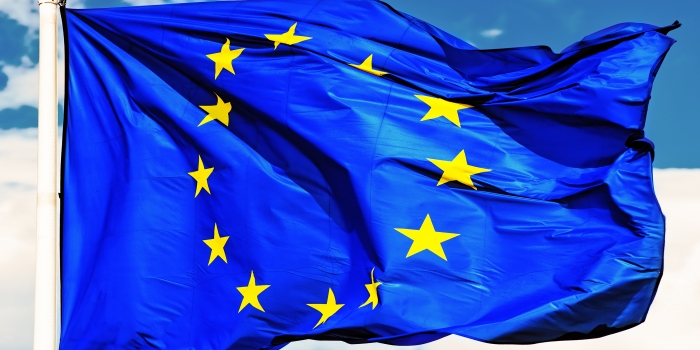The EU and Canada announced on Monday that they have revised the investment protection terms in their bilateral trade pact, with the new version now including an investment court system that Brussels is hoping to pursue in other trade agreements – including with the US.
“We have responded to Canadians, EU citizens, and businesses with a fairer, more transparent system,” said EU Trade Commissioner Cecilia Malmström and Canadian Trade Minister Chrystia Freeland in a joint statement.
The changes were made during the “legal scrub” of the trade deal, which is known as the Comprehensive Economic and Trade Agreement (CETA). The original negotiations for the pact were completed in 2014, following over six years of talks.
“With the changes we have agreed we bring CETA fully in line with our new approach on investment protection in trade agreements. In particular, we demonstrate our determination to protect governments’ right to regulate, and to ensure that investment disputes will be adjudicated in full accordance with the rule of law,” said the European Commission’s First Vice President, Frans Timmermans.
Eyes on international investment court
Under the terms of the revised investment chapter, the EU and Canada will now put in place a 15-member, permanent tribunal to adjudicate investment-related disputes, with five EU nationals, five Canadian nationals, and five nationals of third countries. The court’s members will be appointed by country governments, with three people judging a given case – one from Canada, one from the EU, and one from elsewhere.
There will also be an appellate mechanism – rather than just potential plans to create one, as had been originally agreed – from the start of the deal’s entry into force.
The appellate tribunal will be able to make changes to the earlier tribunal’s award on the grounds of errors or application in law; “manifest errors” regarding facts; and also Article 52(1) of the ICSID convention, which involves issues on how the tribunal was constituted, whether it exceeded its powers or if an individual member showed corruption, or if the reasons for the award were not stated or procedures were not upheld.
ICSID refers to the International Centre for Settlement of Investment Disputes, an independent institution set up under the World Bank Group to provide arbitration and conciliation in complaints between governments and investors.
Notably, Canada has agreed that it shares the EU’s goal of setting up an international version of this court system, one that will eventually replace the one in CETA if agreed.
“The Parties shall pursue with other trading partners the establishment of a multilateral investment tribunal and appellate mechanism for the resolution of investment disputes. Upon establishment of such a multilateral mechanism, the CETA Joint Committee shall adopt a decision providing that investment disputes under this Section will be decided pursuant to the multilateral mechanism and make appropriate transitional arrangements,” says Article 8.29 of the trade pact.
Right to regulate
Another revision touted by the two sides involves the terms used to describe each party’s right to regulate, which officials say provides stronger guarantees than what was in the original version.
“For the purpose of this Chapter, the Parties reaffirm their right to regulate within their territories to achieve legitimate policy objectives, such as the protection of public health, safety, the environment or public morals, social or consumer protection or the promotion and protection of cultural diversity,” the agreement reads under Article 8.9.
The agreement continues on to say that “the mere fact that a Party regulates, including through a modification to its laws” such that it has adverse implications for either an investor or their expectations does not mean that the party has violated its commitments under the CETA investment chapter. The document also outlines terms regarding whether a country’s decision to maintain, renew, or end a subsidy would constitute a breach.
Whether such terms will indeed be viewed by sceptics as providing the necessary assurances that governments will have the right to continue adopting domestic policies geared toward the public interest remains to be seen.
Some advocacy groups have already come out against the changes, warning that they are insufficient to address the past problems seen under investor-state dispute settlement.
“The Investment Court System is nothing but private arbitration under another name, keeping VIP rights for foreign investors fully alive and allowing them to sideline the legal system in Europe,” said Natacha Cingotti, trade campaigner for Friends of the Earth Europe, in a statement.
Other quarters have, however, expressed interest in the result, noting that it marks an effort to improve.
“Congrats EU & Canada negotiators on concluding CETA legal review bringing on board the new investment protection system EP called for,” said European Parliament President Martin Schulz via social media site Twitter. “CETA shows EU’s capacity to safeguard and set standards, open up markets to keep EU competitive in a world of trading giants.”
The European Parliament will have to sign off on the final deal, once it is tabled.
Coming up
With the legal scrub now behind them, the difficult hurdles of ratification still remain. The two sides say that they aim to see the deal signed this year and in force in 2017.
The EU is Canada’s second largest trading partner, while the North American country is the EU’s twelfth largest trading partner. According to the European Commission, bilateral goods trade reached €59.1 billion in 2014, with services trade at €27.2 billion. Regarding investment, Canadian investors in 2013 had nearly €117 billion in direct investment stocks, while European investors had over €225 billion in Canada.
Meanwhile, the EU is continuing to push for this type of court system in other trade deals it is negotiating. Having already worked it into its recently-concluded pact with Vietnam, Brussels is pushing for such a system to be incorporated into the Transatlantic Trade and Investment Partnership (TTIP) with the United States – a task that is widely expected to be difficult, given the scepticism expressed by top US trade officials over the need for this level of changes. (For more on TTIP, see related story, this edition)
ICTSD reporting.
(March 3, 2016, Compliments Bridges Weekly)




